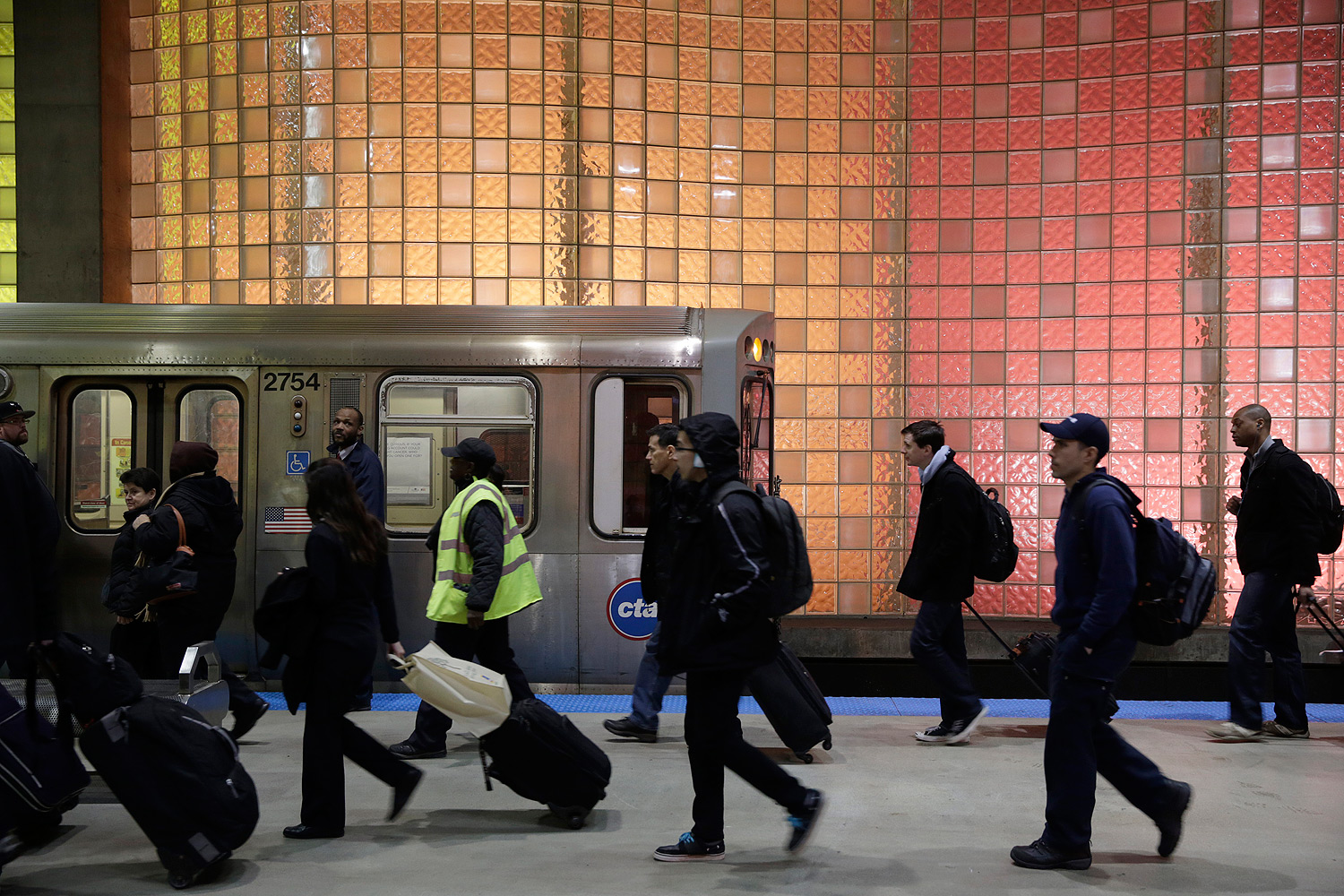The curious dream of an express train from O'Hare to downtown, now in its second mayoral tenure, got another shot in the arm this week, with Elon Musk announcing that his Boring Company would bid on the city's request for proposals for a privately run train. While other Musk companies like Tesla and Space-X can point to functioning or near-functional products, the Boring Company is still in its infancy—it's dug a short tunnel so far using standard underground drilling equipment operating at typical speeds. The end goal is a 150-mph "subway" for cars, in which cars would connect to skates and get whisked along, parallel to Los Angeles's Interstate 405, with options to exit every mile or so. (More precisely, it's less like a subway than a hybrid between an interstate and people movers.)
There's a lot of skepticism about the proposal. Last year Daniel Kay Hertz laid out four reasons why it's a terrible idea for Chicago. In 2015 Steven Vance wrote about how the express train already exists in the form of the Blue Line. In the Reader, John Greenfield summed up the criticisms while exploring a compromise plan from the Midwest High Speed Rail Association that would ameliorate some of them.
There's a lot to learn from this skepticism. But I can't shake the experience of London with the Heathrow Express, which has proved a feasible private alternative. It could be comparable to an O'Hare express train, but the question is whether it's a close comparison or not.
The Telegraph lays out the basics: The Heathrow Express is considerably faster than the cheapest alternative, the London Underground, saving 20 to 30 minutes depending on the commute and costing about three to five times as much. There's a middle option, the Heathrow Connect, which is cheaper and not much slower than the Express but doesn't run as often. (This is one of Hertz's points: A much faster express train would also have to run frequently from the airport to downtown, because a considerable wait for it would negate any time savings from the Blue Line.)
So London has three options for all tastes, and the Express has still carved out a substantial slice of the market. Data suggests that since it launched, the share of passengers using cars to get to the airport has fallen, while those using rail has climbed, and the taxi and bus share remained steady—however, most of that shift appears to have gone to the London Underground and Heathrow Connect.
Chicago's request for qualifications for the express train, issued on Wednesday, suggests that 52 percent of daily trips from O'Hare to the central business district were by taxi or ride-share in 2015, and 20 percent were by the Blue Line. That equals 10,000 to 13,000 by taxi/ride-share and 4,000 to 5,000 by CTA.
This is where the numbers for an O'Hare express train starts to look a bit iffy. There's a high percentage of passengers waiting to be shifted from taxis to an express train, but is it enough for a sustainable business? The Heathrow Express reports 17,000 passengers a day, on the high end of estimates for taxi and public transit combined for Chicago. Since the two airports currently serve about the same number of passengers every year, this discrepancy might be because there are more Heathrow passengers who travel downtown than O'Hare passengers—35 percent compared to 14 percent, according to this data, which is admittedly from 2002. It's possible the O'Hare number has gone up since then (there's a lot more to do downtown now) but it would still be a lot of ground to make up.
Chicago's RFQ predicts an O'Hare express train could serve 17,000 passengers a day, on the high end, in 2045. In its first year, the Heathrow Express was averaging 10,000 trips a day. An O'Hare express train would have to get about half the CTA market and 75 percent of the taxi market to put up similar numbers.
By comparison, Toronto's Union Pearson Express—considered something of a cautionary tale for airport express trains—averaged about 8,000 passengers a day between April 2016 and May 2017 with heavy subsidies.
An O'Hare express train would theoretically be built without taxpayer money, which makes it more appealing as an experiment. Costs to construct mass transit in America are extremely high, even compared to developed European countries, and no one really knows why. If, say, Elon Musk takes it on, there could be important lessons learned if he can (or can't) bring down construction and operating costs. And if it did work, odds are it would mostly take cars and taxis off the road.
But it would also put the builder and his or her financial backers at considerable risk. The Heathrow Express has made a similar model work, but the conditions for it appear to have been more favorable. It's not unthinkable that financial backers could give it sufficient subsidies for an O'Hare express train to run for awhile—Uber is basically a massively subsidized transportation network, just with private money—but the numbers suggest it's an edge case.



